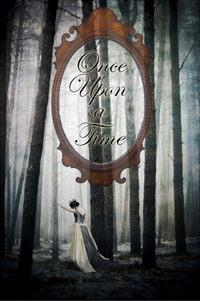Oh Bruno Bettelheim, you silly bunny. So many things about your book annoyed me until I flipped to your about-the-author and looked at your dates. Turns out, there is some excuse for your dated Freudian psychology: you were born in 1903! After I knew that, so many things about you still annoyed me. I like for writers to use the phrases “oedipal conflict” and “oral incorporative stage” sparingly, if at all. Your dates are no excuse! I would have found it even more annoying if I had not suddenly remembered this (warning for language); and then every time Bettelheim said something Freudian, I thought of Robert DeNiro and smiled.
Bruno Bettelheim says very little of value that I haven’t already heard out of Max Lüthi. Most of the book is intended to persuade modern parents that fairy tales are good for their children because they provide the children with safe outlets for expressing their darkest emotions. I do not require to be persuaded of this and thus became (unfair of me really) impatient with Bettelheim for continuing to try and persuade me. I wanted to be all I ALREADY AGREE WITH YOU DUDE! I wanted him to say new and exciting things that never would have occurred to me otherwise, and he didn’t really do that.
Moreover, I do not know that Bettelheim is right in trying to find one-to-one correspondences between every aspect of the story under discussion and every aspect of a child’s Freudian development. “The Goose Girl” helps to guide children from the early oedipal stage to the next higher one; “Hansel and Gretel” helps them to overcome and sublimate their primitive incorporative desires, and so on like that. His notion was that these stories have evolved over many generations in such a way as to reflect children at different stages in their development. I am not completely convinced.
And then there was this:
Since in response to such direct and obvious seduction [the wolf inviting her into bed] Little Red Riding Hood makes no move to escape or fight back, either she is stupid or she wants to be seduced. In neither case is she a suitable figure to identify with. With these details Little Red Riding Hood is changed from a naive, attractive young girl, who is induced to neglect Mother’s warnings and enjoy herself in what she consciously believes to be innocent ways, into nothing but a fallen women.
Bruno, Bruno. I’m sorry, but we can’t be friends. I’m returning you to the library and reading Marina Warner instead. I believe that she will not anger me but will indeed have insightful remarks to make about gender, and I further believe that she will not be using the phrase “fallen woman” unironically. I trust Marina Warner that way.
The Uses of Enchantment was my eighth (if I’ve counted them up right) and final read for the Once Upon a Time Challenge, as it ends tomorrow, and I won’t be reading Marina Warner before then because I am too busy with Sea of Poppies. I was totally successful at this challenge and read more books for it than I anticipated I would. Some of them surprised me by being wonderful, and some I wanted to love but did not. You know how that goes.
Other people what read Bruno Bettelheim:
Tales from the Reading Room
books i done read
Did I miss yours? Tell me and I will add a link!
